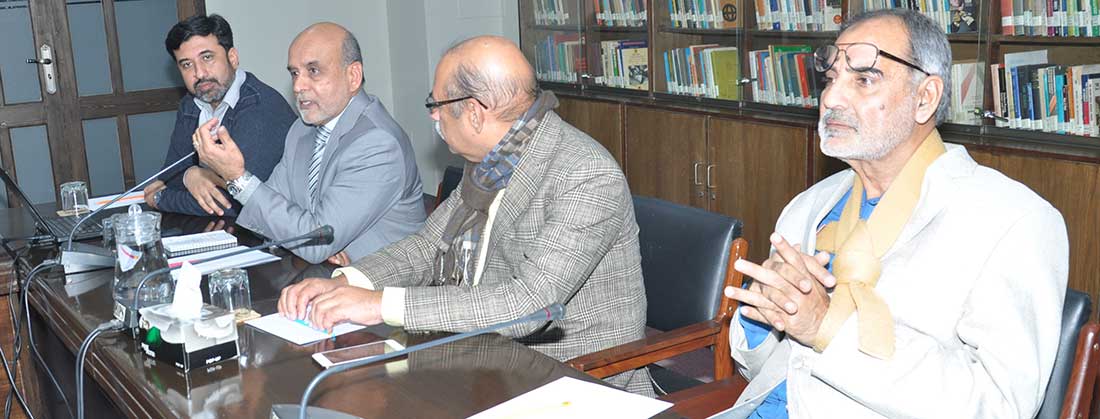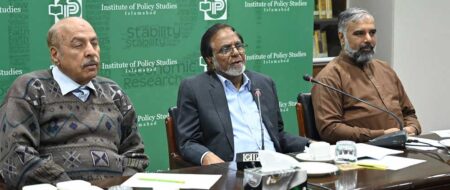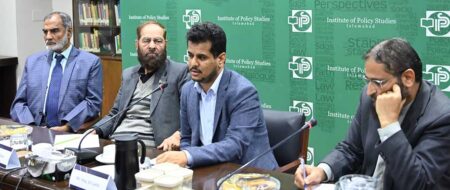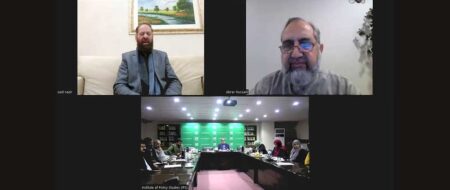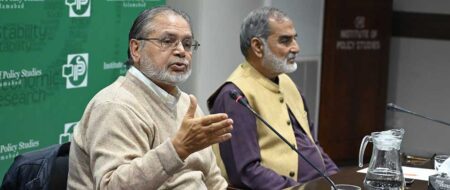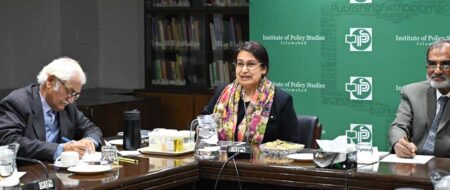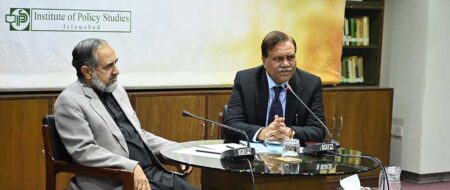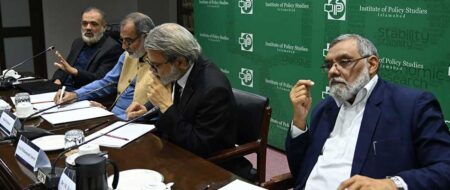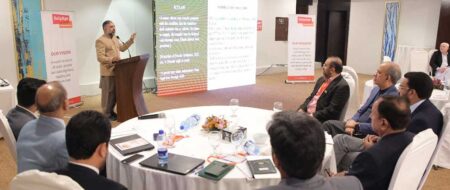Fourth Industrial Revolution: Opportunities and Challenges for Pakistan
Proactive approach urged to benefit from Fourth Industrial Revolution
By 2022 robots will take over the jobs of 75 million
people globally while more than 130 million new jobs will be created due to the
technological advancements taking place. Pakistan needs to be proactive to
enhance its education system to compete with other nations in the era of the
4th Industrial Revolution.
These views were shared by Shams Faiz, Chairman of
Robotmea Pakistan, during the seminar “Fourth Industrial Revolution:
Opportunities and Challenges for Pakistan”, organized by the Institute of
Policy Studies (IPS), Islamabad, on December 20, 2019.
The session was chaired by Dr Arshad Ali, CEO, Asian
Institute of Industrial Air (AIIA) and former dean of National University of
Science & Technology (NUST).
Faiz said the key words for being proactive are speed,
simplicity and self-confidence.
Further talking about improving education, he said
that we have to introduce the STEM (Science, Technology, Engineering and
Mathematics) with hands-on learning methodology to make our children
innovative. Robotic kits and labs are an effective tool to teach STEM that
build the children’s capacity in critical thinking, collaboration,
communication skills and creativity.
Faiz said the Americans have fallen behind other
nations, including China and India, in technology and innovation. This is
because their kids are not taking up science and technology subjects and are
instead opting for social sciences and liberal arts. Pakistan must learn from
the failure and success of other nations, he added.
He also said that technology has provided a level playing field and now access to knowledge is available for every person. In this scenario, Pakistan must not miss the opportunities as it did in the past industrial revolutions.
Dr Arshad said that talent needs to be nurtured. However, the lack of vision and initiative at the government level is the biggest challenge, which can be overcome by the vibrant private and development sector of the country.


